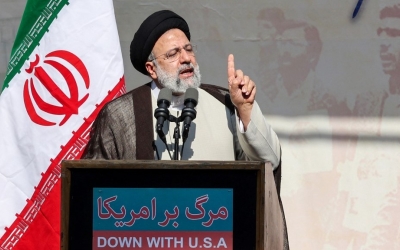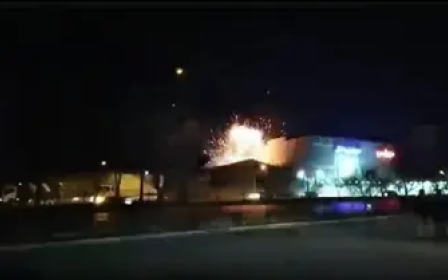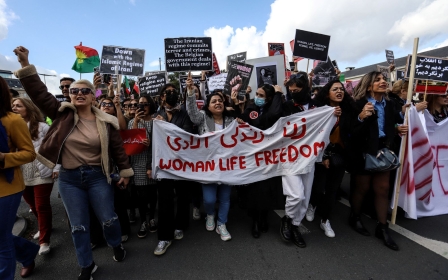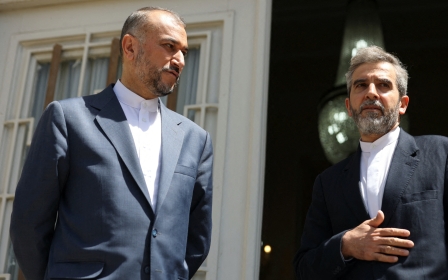Israel carried out drone attack on Iran defence facility - WSJ
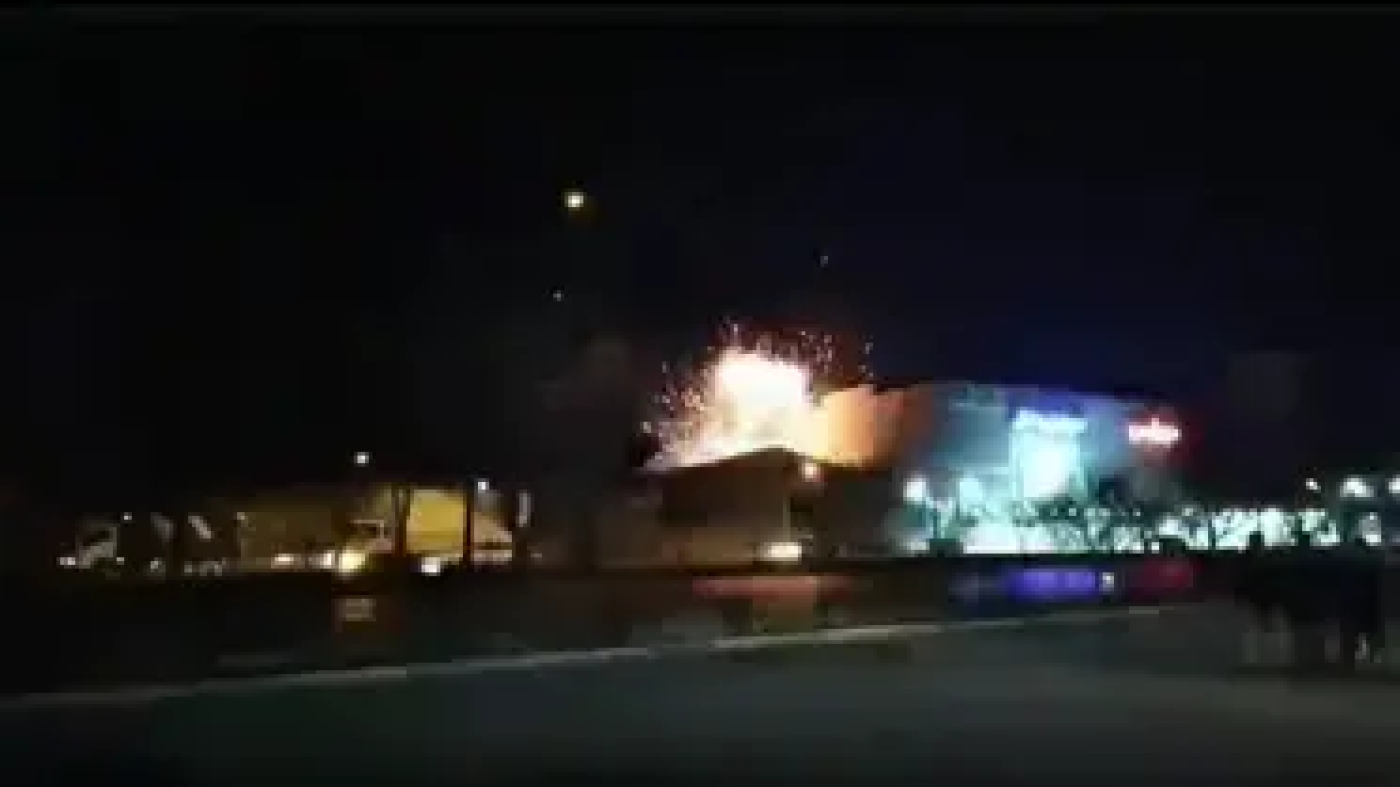
Israel carried out the drone attack that struck a defence facility in the Iranian city of Isfahan, the Wall Street Journal reported on Sunday, citing US officials and people familiar with the operation.
The American newspaper said that the strike was the first to be carried out by Israel since Prime Minister Benjamin Netanyahu returned to power last month, adding that the attack came amid talks between Jerusalem and Washington on new ways to counter Tehran, including its deepening military cooperation with Russia.
Netanyahu had sanctioned a series of bold operations inside Iran when he last served in that role from 2009 to 2021.
The report also said the drones targeted a munitions factory next to a facility belonging to the Iran Space Research Centre, which is under US sanctions for its alleged work on ballistic missiles.
New MEE newsletter: Jerusalem Dispatch
Sign up to get the latest insights and analysis on Israel-Palestine, alongside Turkey Unpacked and other MEE newsletters
Iranian Foreign Minister Hossein Amir-Abdollahian called the blast a cowardly strike.
“Such actions cannot impact the determination and intent of our experts for peaceful nuclear progress,” he said, according to government news service PadDolat.
A spokesperson for the Israeli military declined to comment. Arch-foe Israel has long said it is willing to strike Iranian targets if diplomacy fails to curb Tehran's nuclear or missile programmes, but it has a policy of withholding comment on specific incidents.
Pentagon spokesperson Brigadier General Patrick Ryder said no US military forces were involved in strikes on Iran, but declined to comment further.
'Minor damage'
The Iranian defence ministry told the state-run IRNA news agency that its air defences had stopped the drone, leading it to blow up and cause the explosion on Saturday night.
"Fortunately, this unsuccessful attack did not cause any loss of life and caused minor damage to the workshop's roof," the ministry said.
"The attack has not affected our installations and mission… and such blind measures will not have an impact on the continuation of the country's progress," the defence ministry statement said.
In 2021, Tehran vowed to seek revenge against Israel after it accused Tel Aviv of sabotaging the Natanz nuclear power plant.
Saturday's attack came amid tension between Iran and the West over Tehran's nuclear activity and its supply of arms - including long-range "suicide drones" - for Russia's war in Ukraine, as well as months of anti-government demonstrations at home.
In Ukraine, which accuses Iran of supplying hundreds of drones to Russia to attack civilian targets in Ukrainian cities far from the front, a senior aide to President Volodymyr Zelensky linked the incident directly to the war there.
"Explosive night in Iran," Mykhailo Podolyak tweeted. "Did warn you."
Iran has acknowledged sending drones to Russia but says they were sent before Moscow's invasion of Ukraine last year. Moscow denies its forces use Iranian drones in Ukraine, although many have been shot down and recovered there.
Iran nuclear deal
Iran and the P5+1 group of countries - the US, UK, France, Russia, China and Germany - reached a deal in 2015 to put limitations on Tehran’s nuclear programme in return for a lifting of sanctions. In 2018, despite Tehran's compliance with the deal, former US President Donald Trump exited the agreement, reapplying heavy sanctions against Iran.
Israel, along with US Gulf Arab allies, opposed the 2015 deal, with Netanyahu publicly slamming it, straining the relationship with Washington.
Since taking office, President Joe Biden has sought to return the US to the agreement - officially called the Joint Comprehensive Plan of Action (JCPOA) - but the two sides have so far failed to revive the deal despite months of talks in Vienna.
One former Iranian diplomat told MEE last week that domestic and global events, not least Iran's close ally Russia invading Ukraine, also appear to have conspired to undermine the chances of a return to the deal.
“Currently, the US is still willing to sign the deal, but we don’t have too much time," he explained.
"Personally I don’t have any hope as an angry Europe and the US are seemingly waiting for a turning point in the Ukraine war to raise the pressure and... bring back all the dangerous UN security council resolutions against Iran."
Middle East Eye delivers independent and unrivalled coverage and analysis of the Middle East, North Africa and beyond. To learn more about republishing this content and the associated fees, please fill out this form. More about MEE can be found here.



